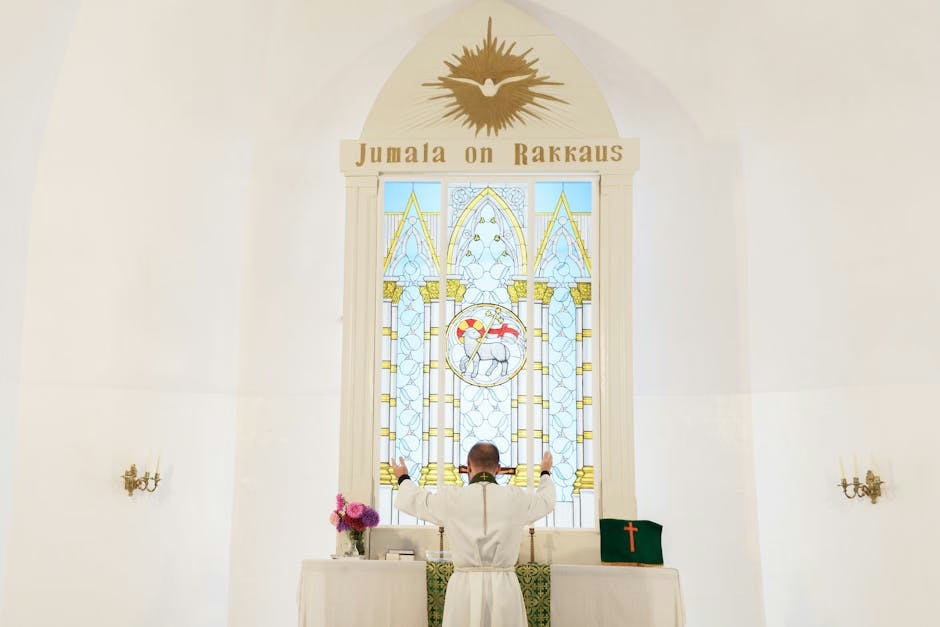Finnish Church Creates Groundbreaking AI-Generated Service: Lessons and Implications
In a bold experiment at the intersection of faith and technology, a Finnish church has recently conducted what might be the world’s first religious service created almost entirely using artificial intelligence. This pioneering effort offers valuable insights into both the capabilities and limitations of AI in deeply human contexts.
The AI-Generated Service Experiment
The Lutheran congregation in Helsinki decided to explore how AI could assist in creating a meaningful worship experience. Using various AI tools, they generated sermons, prayers, music, and even visual elements for their service. The experiment was designed not to replace human clergy but to understand how AI might complement traditional religious practices.
“We wanted to see if AI could capture the essence of our spiritual tradition while bringing fresh perspectives,” explained Pastor Mikko Virtanen, who oversaw the project. “The results were both promising and humbling.”
What Worked Well
Surprisingly, several aspects of the AI-generated service resonated with the congregation:
– Scriptural Interpretation: The AI demonstrated an impressive ability to connect biblical texts with contemporary issues, offering interpretations that many congregants found insightful.
– Musical Compositions: AI-generated hymns maintained traditional Lutheran melodic structures while introducing subtle variations that many found refreshing.
– Visual Elements: Projected imagery created by AI art generators provided meaningful visual accompaniment to the service themes.
Challenges and Limitations
However, the experiment also revealed significant limitations:
– Emotional Authenticity: Many congregants noted that while the content was technically sound, the AI-generated sermon lacked the emotional resonance and personal connection that human clergy provide.
– Contextual Understanding: The AI occasionally misinterpreted cultural nuances specific to Finnish Lutheran traditions, creating moments that felt disconnected from the congregation’s lived experience.
– Spiritual Discernment: Questions arose about whether AI, lacking consciousness and personal faith, could truly facilitate spiritual connection.
Broader Implications
This Finnish experiment comes at a time when discussions about AI’s role in society are intensifying. As one church member noted, “This isn’t just about religion—it’s about understanding what remains essentially human in an increasingly AI-assisted world.”
The experience parallels challenges faced in other sectors where AI is being deployed for traditionally human tasks. Just as businesses are discovering that AI tools can enhance but not replace human creativity and judgment, religious institutions may find AI useful for certain administrative or educational functions while preserving human leadership for core spiritual guidance.
Looking Forward
The Finnish church plans to continue experimenting with AI as an assistive tool rather than a replacement for human ministry. They’re developing guidelines for ethical AI use in religious contexts and sharing their learnings with other congregations interested in similar explorations.
“What we’ve learned is that AI can be a powerful tool for ministry when used thoughtfully,” said Pastor Virtanen. “But the heart of our faith community remains deeply human—the connections between people, the shared experiences of joy and suffering, and the mystery of faith itself.”
As AI capabilities continue to advance rapidly, this Finnish experiment provides valuable insights for religious communities worldwide considering how to engage with these technologies while preserving their essential human and spiritual dimensions.
Conclusion
The Finnish church’s experiment represents a thoughtful approach to integrating new technologies into ancient practices. Rather than rushing to either embrace or reject AI, they’ve chosen a path of careful discernment—learning what AI can contribute while recognizing what remains irreplaceably human in religious experience. Their journey offers lessons not just for religious institutions but for all sectors navigating the complex relationship between artificial intelligence and human meaning-making.


